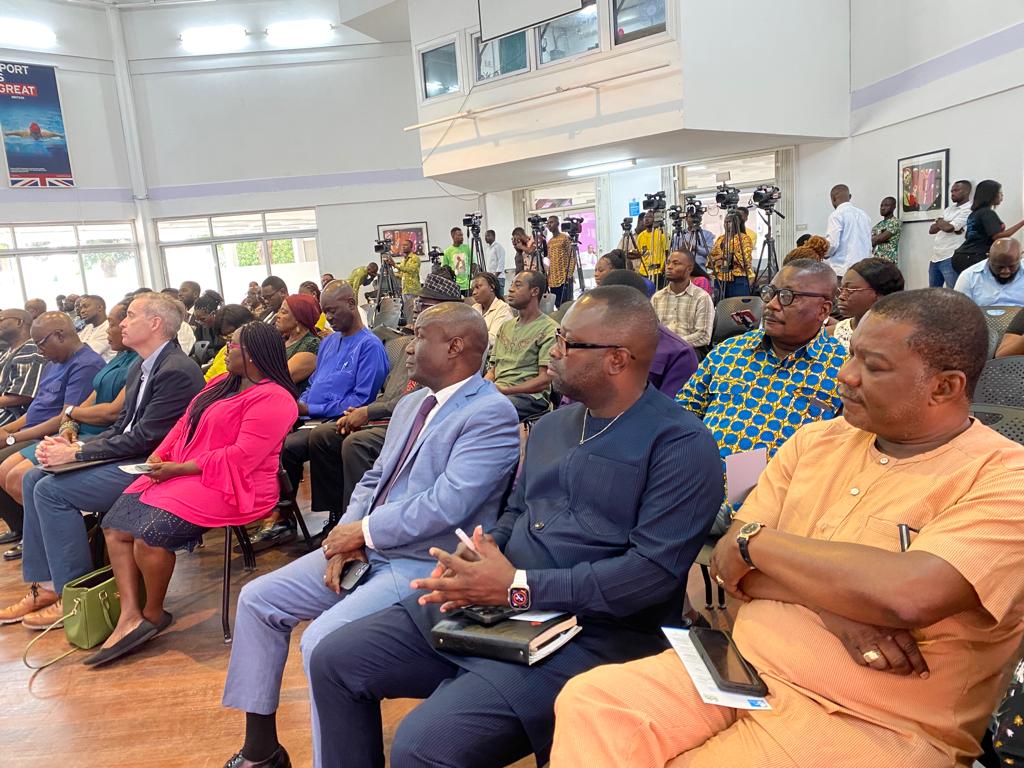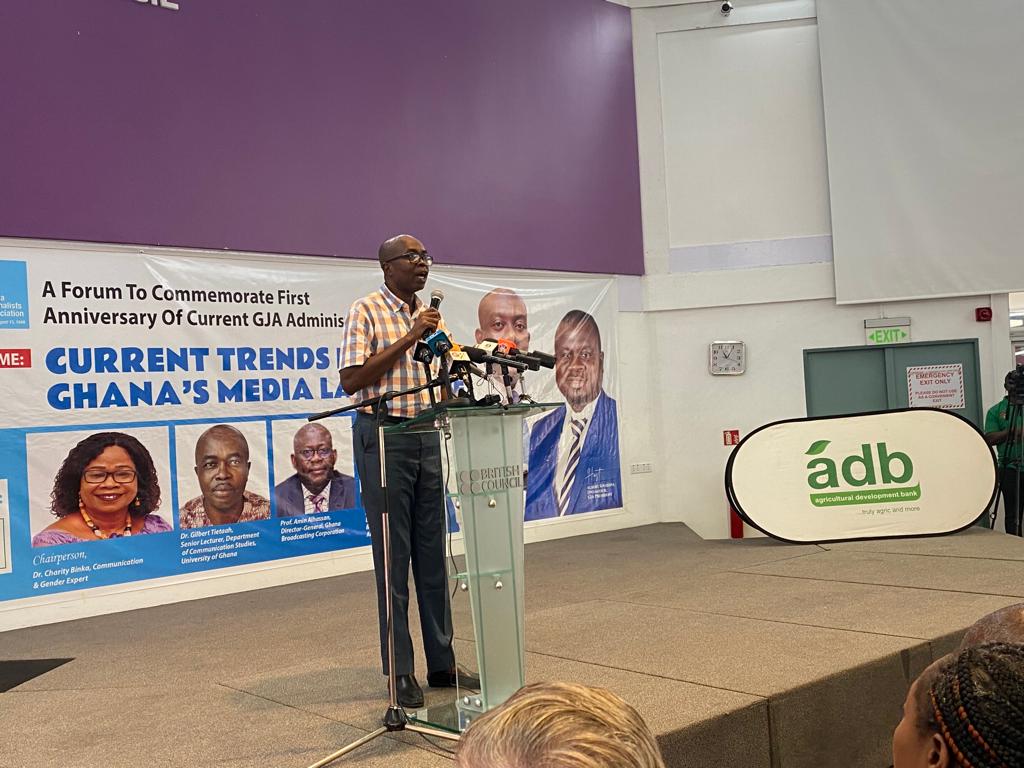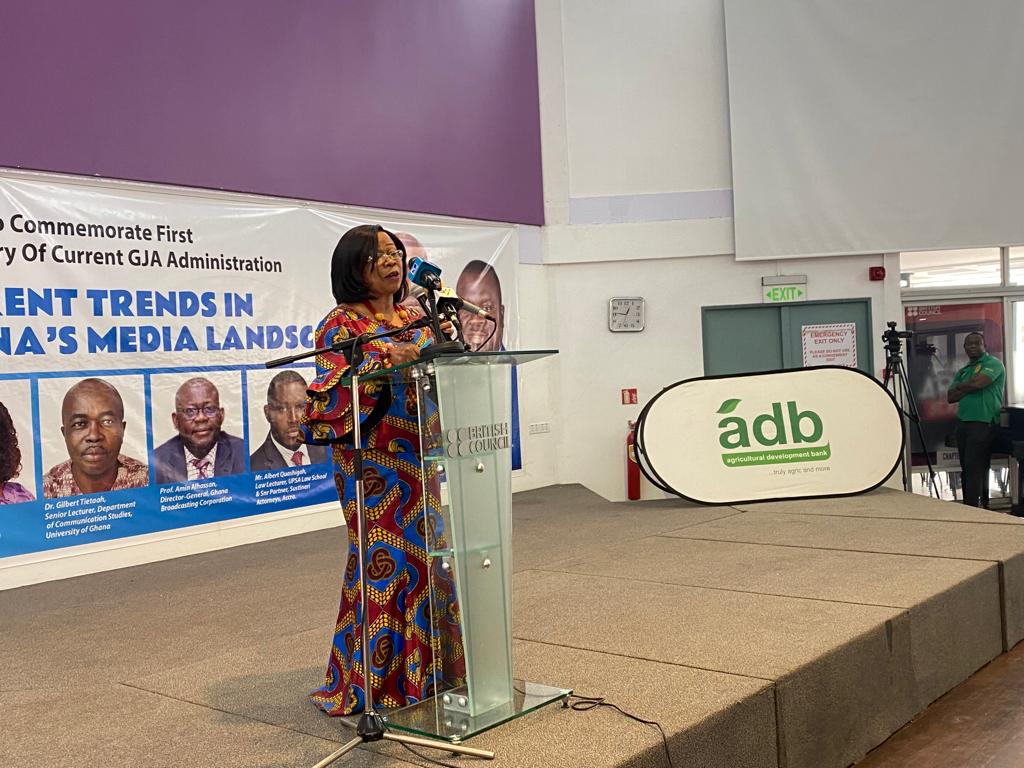By Benjamin A. Commey
Accra, Aug 09, GNA – Mr Albert Kwabena Dwumfour, President of the Ghana Journalists Association (GJA), has reiterated the need for Ghanaians and in particular journalists, to do whatever it takes to protect the right to free expression in the country.
Speaking at a forum to commemorate the first anniversary of the new administration of the GJA, in Accra, on Tuesday, Mr Dwumfour said the right to free expression was key to the development of the country, which must be protected and safeguarded.
“Madam Chair, it must be emphasised that the right to free expression is crucial to the development of every nation, and therefore, all measures must be taken to ensure it is not infringed in any way,” he said.

The forum, held in partnership with the Agricultural Development Bank (adb), among other things, was to enable the current administration of the GJA to evaluate its performance a year after assuming office.
It was on the theme: “Current Trends In Ghana’s Media Landscape”.
Mr Dwumfour said the leadership was on course to restoring the Association to its former glory, stressing that, since assuming office a year ago, the leadership of the GJA had made significant strides indicating that the Association was headed to the right direction.
Some of the achievements are the refurbishment of the Ghana International Press Centre; the launch of the Journalist Support Fund to address welfare concerns, campaigns attacks against journalists; increased advocacy for, and defense of, press freedom, and increased participation in the activities of the GJA.
“Madam Chair, although the task seemed daunting at the beginning, we have been able to make some significant achievements over the past one year in office,” he stated.
Mr Dwumfour also indicated that media protection, better conditions of service, and scheme of service for journalists remained a priority for the GJA, noting that Ghana’s ranking on the World
Press Freedom Index had suffered in recent time due to poor economic conditions of Ghanaian journalists.

“We believe that press freedom is meaningless until it is linked to the professional development and total financial liberation of journalists,” he said.
Mr Dwumfour added that leadership was taking some steps in the interest of members, collaborating with the Private Newspaper Publishers Association of Ghana, the Ghana Independent Broadcasters Association and Media Foundation for West Africa, to help fight attacks on press freedom.
“The challenges are many but with your support, we are resolved to overcome them,” he assured.
Dr Gilbert Tietaah, a Senior Lecturer, Department of Communication, University of Ghana, noted that the multiplicity of media ownership had served the media well, and strengthened the country’s democracy.
However, he raised concern about the increased in media ownership by political actors, and the growing tendency towards media empire building and urged authorities to address the current broadcast regime.
“We are concern that the current regime of broadcast legislation, which allows considerable power and influence on those whose conduct the media are supposed to be checking upsets the hope and aspiration about the media’s role as the fourth estate, about the media’s role as a bridge between citizens and their governments or the media’s role as watchdogs,” he stated.

Dr Charity Binka, a Gender and Communication Expert, and Chairperson of the forum, said the media still had a critical role to play in the development of the country by providing information on every sector of the economy and safeguarding democracy.
Therefore, she warned that any attack on press freedom was an attack on society.
“If you kill the media, you are killing the society. We need the media to get information for our health, politics, everything,” she emphasised.
GNA